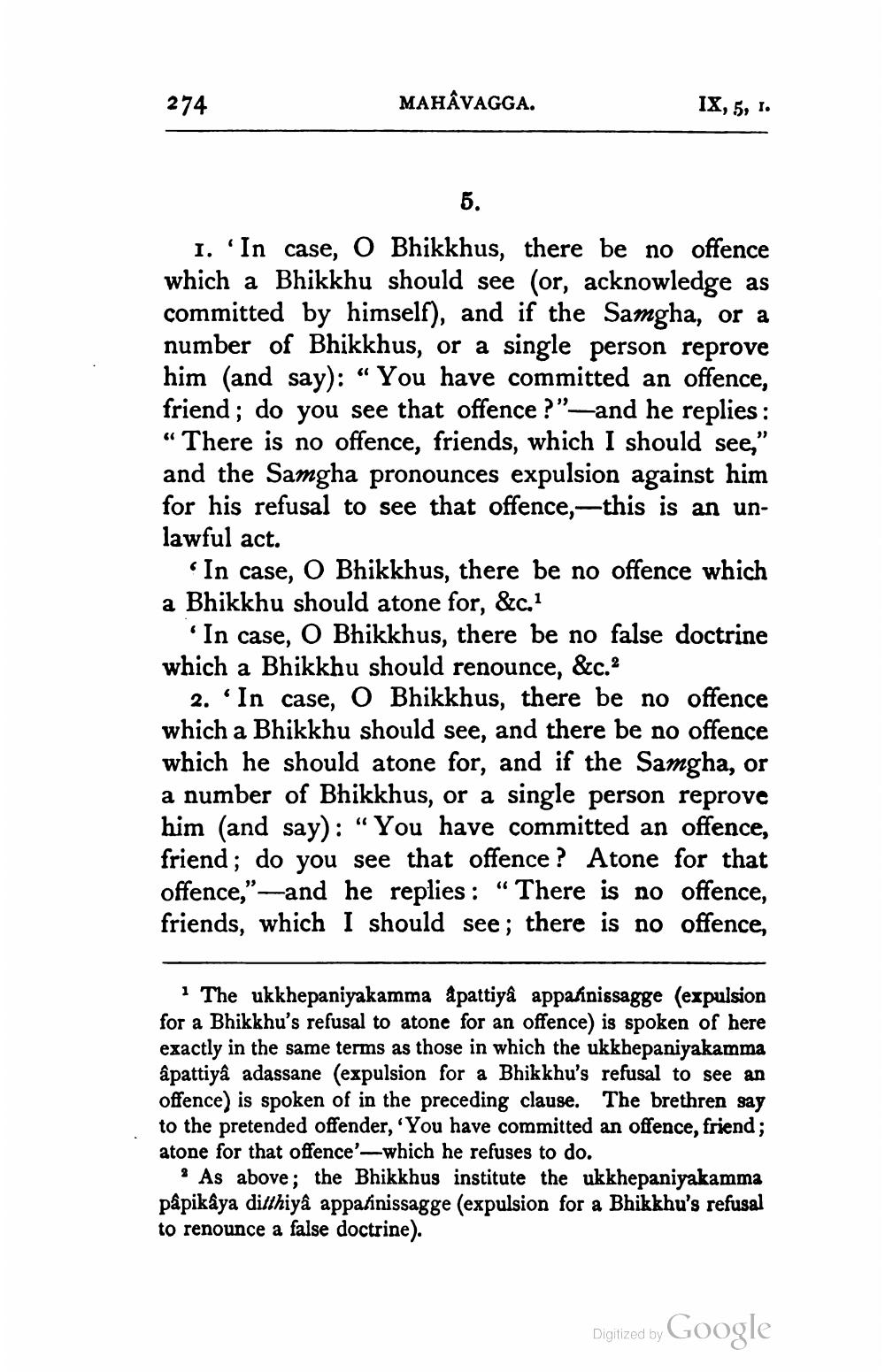________________
274
MAHAVAGGA.
IX, 5, I.
5.
I. 'In case, O Bhikkhus, there be no offence which a Bhikkhu should see (or, acknowledge as committed by himself), and if the Samgha, or a number of Bhikkhus, or a single person reprove him (and say): "You have committed an offence, friend; do you see that offence?"—and he replies: "There is no offence, friends, which I should see," and the Samgha pronounces expulsion against him for his refusal to see that offence,-this is an unlawful act.
In case, O Bhikkhus, there be no offence which a Bhikkhu should atone for, &c.1
'In case, O Bhikkhus, there be no false doctrine which a Bhikkhu should renounce, &c.2
2. In case, O Bhikkhus, there be no offence which a Bhikkhu should see, and there be no offence which he should atone for, and if the Samgha, or a number of Bhikkhus, or a single person reprove him (and say): "You have committed an offence, friend; do you see that offence? Atone for that offence," and he replies: "There is no offence, friends, which I should see; there is no offence,
1 The ukkhepaniyakamma âpattiyâ apparinissagge (expulsion for a Bhikkhu's refusal to atone for an offence) is spoken of here exactly in the same terms as those in which the ukkhepaniyakamma âpattiyâ adassane (expulsion for a Bhikkhu's refusal to see an offence) is spoken of in the preceding clause. The brethren say to the pretended offender, 'You have committed an offence, friend; atone for that offence'-which he refuses to do.
As above; the Bhikkhus institute the ukkhepaniyakamma pâpikâya dilthiyâ apparinissagge (expulsion for a Bhikkhu's refusal to renounce a false doctrine).
Digitized by Google




